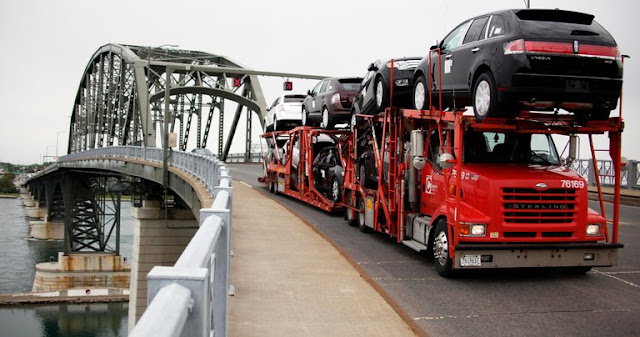OTTAWA — Unifor, Canada’s largest private sector union, reached a tentative agreement with the Ford Motor Company of Canada early Tuesday, concluding contract talks with the three Detroit-based automakers.
As with the Canadian branches of General Motors and Fiat Chrysler Automobiles, the union focused on preserving jobs as much as traditional contract issues like wages.
Jerry Dias, the union’s national president, said that the company would invest about 700 million Canadian dollars, or $522 million, to introduce a new engine at one of three engine factories Ford has in Windsor, Ontario. He said that the two older of those Windsor factories, which had been widely expected to close, would probably remain open.
“Are we better off today than we were yesterday in Windsor?” Mr. Dias said. “The answer is yes.”
He added that with the new investment, the company’s employment in the city would probably increase.
The contract, which covers about 6,400 workers, otherwise generally mirrors agreements Unifor had made with the two other companies. Among other things, the contract will accelerate the rate at which new employees move to their new, higher wages. In turn, the union agreed that those workers would only have pension plans that paid out depending on performance, rather than the traditional plans, which have payments of a guaranteed size.
In a news release, Ford declined to comment until the union members ratified the agreement.
As Monday’s strike deadline neared, Unifor’s leadership was torn between contradictory demands from Ford and a rift among its members who work at the company.
According to the union, Ford’s negotiators said that the company would match the agreements that Unifor had signed with General Motors of Canada and Fiat Chrysler
Automobiles Canada only if the union agreed to accept cost cuts.
Under a system known as pattern bargaining, Unifor has always taken the position that it would not give any of the three Detroit-based automakers special concessions. Doing so, it has contended, would create an unfair advantage for one company.
Ford declined to answer specific questions about the negotiations before the settlement was announced. After the talks ended, Mr. Dias said that the union did not make any cost concessions like allowing the use of temporary workers.
In an unusual move, the president of the Unifor local that represents Ford’s biggest plant in
Canada, a sport utility vehicle assembly plant west of Toronto in Oakville, Ontario, said that his members opposed the agreement reached with G.M. and Fiat Chrysler.
“The framework agreement between G.M. and the membership will not suit the needs of the membership in Oakville,” Dave Thomas, the president of Local 707, wrote in an online post to members on Oct. 1. He added, “We as a local bargaining committee will not sacrifice the needs of the membership in Oakville and settle on an agreement that doesn’t address our issues.”
Mr. Thomas reiterated his position after Fiat Chrysler accepted the terms of the pattern contract.
But the local chapter that represents workers at the three Ford engine factories in Windsor accused the Oakville local of jeopardizing the future of Ford in Canada.
In a Facebook post to members on Sunday, the Local 200 bargaining committee told its members that Ford had advised the union that if there were a strike over Oakville’s demands for a contract beyond the pattern agreement, the company “will exit their Canadian operations.”
The Windsor local, using language normally reserved for denouncing employers’ demands, reprimanded its Oakville counterpart.
“We have never seen a bargaining committee that openly wants to gamble on the future of all Canadian operations and call a bluff,” the bargaining committee wrote in the post. It said, “It’s not right and it’s not fair to all Unifor Ford members.”
Early Tuesday, Mr. Dias said the union had successfully negotiated some gains with Ford beyond what was included in the pattern agreement. But he declined to describe them and noted that the contracts with all three companies included some unique terms.
There are few concerns about Ford’s Oakville plant, where 5,000 Unifor members produce the Ford Flex, the Ford Edge and two Lincoln models, the MKX and MKT. It has received substantial investment over the last decade. Mr. Dias said that the plant now had an additional mandate to make vehicles for sale outside North America.
But two of the plants in Windsor are in adjacent factories that date from 1923. Their 600 employees make large, V-10 truck engines. Tighter fuel economy and emissions standards have darkened the outlook for such engines.
Mr. Dias said that plant would continue to make V-10s for the foreseeable future, although he suggested that employment might fall there.
The new engine will be made in a comparatively new factory elsewhere in the city that currently builds V-8s for the Ford Mustang and the F-150 pickup truck.
Source: TheNewYorkTimes


